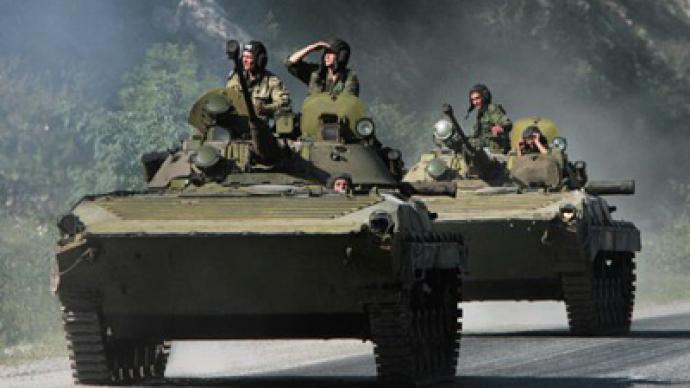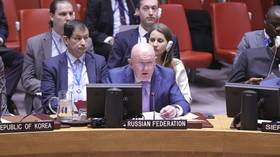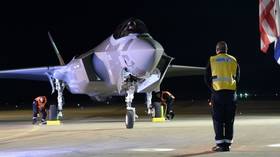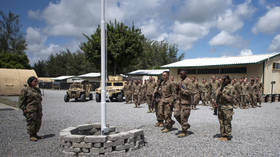Russia to seal military deal in South Ossetia and Abkhazia

According to the Kremlin press service, President Dmitry Medvedev has submitted to the State Duma for ratification agreements with the Republic of South Ossetia and the Republic of Abkhazia on unified Russian military bases in these Caucasian states.
The Russian president’s move to ratify the agreements, which falls rather symbolically on the third anniversary of the start of the South Ossetia War, will lay down the ground rules with regards to the operation of the Russian military bases in Abkhazia and South Ossetia.The agreement determines the procedure for deploying from the Russian military bases – in cooperation with the armed forces of the two republics – in the event they are needed to protect the sovereignty of these states, as well as Russian territory.On the morning of August 8, 2010, Russia was caught unawares as Georgia unleashed a full-scale military offensive against Tshkinval, the South Ossetia capital. Twelve Russian peacekeepers were killed in the initial attacks, which also left scores of civilians dead, injured or on the run. Following the five-day conflict, Russia formally recognized the independence of Abkhazia and South Ossetia. It now has military bases with a troop presence of 3,800 on the territories of the two republics.Russia hopes the new agreement being brought before the Duma will preserve a lasting peace in the region.“The agreements…describe the procedure of the use and operation of facilities of the military bases and other assets and the conditions of using sections of land,” Interfax, citing the Kremlin document, reported. “They define the status of the personnel of the military bases, families of military and civilian personnel and other matters related to the functioning of the military bases.”At many times throughout their long history, the people of South Ossetia have demonstrated their passionate aspiration for independence.Most recently, with the collapse of the Soviet Union in 1991, rumblings for South Ossetian independence echoed across the mountainous region. This quest for independence led to the first South Ossetian War, which began on January 5, 1991 against Georgia. Following the intervention of Russian peacekeepers, and not before some 1,000 civilians had lost their lives, came to an end on June 24, 1992. As a result of the conflict, the republic won its de facto independence.But the end of war did not, as Russia learned three years ago, end the tensions.Today, Russian military base #4 in South Ossetia is divided between Tskhinval and Java; while in Abkhazia, Russian military base #7 is located in both Gudauta and Ochamchira. The Gudauta base has 1,500 troops, while the remainder of the personnel is stationed in Maikop, Russia.According to the agreement, the deployment of the Russian bases may be extended as the situation demands.The agreement between Russia and Abkhazia was signed in Moscow on February 17, 2010, and between Russia and South Ossetia on April 7, 2010.Dmitry Medvedev has marked the anniversary of the Russian-Georgian war by paying a visit to an army unit that fought in the conflict. The Russian leader praised the troops for emerging victorious against the “aggressor” in the August 2008 war.Robert Bridge, RT














